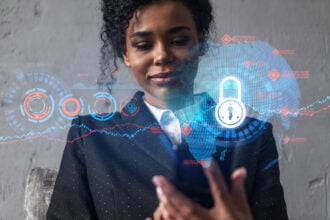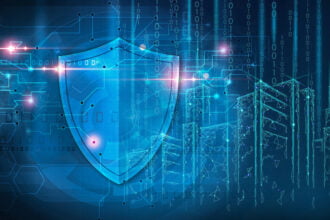AI technology has played a crucial role in the future of cybersecurity. According to Grand View Research, cybersecurity providers spent over $16.4 billion on AI in 2022. This figure is projected to grow over 24.3% a year through 2030.
We talked about some of the many ways that AI is invaluable to the cybersecurity industry back in October. One of the many benefits of utilizing AI for cybersecurity is that it can help improve industrial hygiene.
AI is Great for Bolstering Cybersecurity and Industrial Hygiene
There should be no question that cyber security in this day and age is more than just a good idea but vital to maintaining the safety and integrity of systems in business today. The number of cyber threats is growing constantly as criminals, technology, and now AI software is becoming more and more advanced. The inventiveness, ingenuity, and, sadly, elusiveness of cyber criminals today means that such threats will continue to be a part of the future of economies moving into the future.
There are countless ways that AI is driving big changes in the cybersecurity space. When combining the importance of industrial industries to the necessity of hygiene and cybersecurity the intersection of those two things becomes robust, industrial cyber security.
The following are some ideas as to how responsible companies can help to secure the future by considering the importance and implications of the intersection of industrial hygiene jobs and cybersecurity.
Potential Consequences
There are potential hacks, and then there are hacks. The difference while small can have devastating consequences for business, industries, and customer bases. Once a hacker has successfully navigated their way into a system, they can do any number of things which can be very damaging to the integrity of industrial systems. The ability to manipulate, control, and mimic the proper procedures of systems that can fool even the most careful and seasoned of workers to overlook the wear and tear on hardware associated with such services.
Over a long enough period of time, those problems can lead to costly damage that can leave systems and teams down for uncomfortable periods of time. Planned or unplanned maintenance can add up to operating costs rather quickly.
While messing with hardware operating systems may just be a point of amusement for some hackers, the real money and damage can be done with a greater exponentiality when hackers learn how to get control of sensitive, personal, and private materials for company or customer information. This type of information can very easily and lucratively be sold especially if it is material like intellectual property, personal customer information, and financial reports.
Failing to recognize the importance of phishing prevention, or the implementation and maintenance of effective industrial cyber security systems is inviting disaster.
Attending to Vulnerabilities
The primary goal of a secure network is to create and implement effective systems which do their best to uphold the security of any organization. Effective creation of cyber hygienics means that the weaknesses in a system which may be exploited by cyber criminals are reduced. To do this companies can see to it that these cyber security teams are regularly testing, updating, and tracking the software and firmware where they are responsible for maintaining sound security systems.
The importance of regularly checking and updating systems with the latest and most secure methods of cyber security means that companies and customers are less exposed to potential threats.
Interdependent Systems
When talking about cyber security, a serious discussion will involve the consideration of the interconnectedness of certain systems. The acknowledgment of which systems are primary and secondary, and which are dependent on the communication between those primary systems helps to identify which operation needs to be more closely guarded.
The understanding of the interconnectedness of every system will help to maintain a cohesiveness that sees to the consistent upkeep of cyber security principles and procedures. Without the knowledge of which aspects of every system are interconnected, it will be harder to identify the potential weaknesses that may be exploited by hackers.
More Than Just Computers
Regardless of how advanced certain computer systems may become, there should always be a human being present to oversee the proper use and care of cyber security systems. A well working cyber system means that the people in charge of this task need to immerse themselves in the environments that they are trying to protect. Doing so brings a clearer understanding of the processes necessary throughout the production line.
When there is full understanding of what needs to be maintained, where potential problems are most frequent, and which areas are most vulnerable to attack, cyber technicians can best update security practices for fuller coverage. Without the insight provided by human ingenuity and thoughtfulness computers run the risk of just sticking to programming. This over reliance on automation is how mistakes happen. Luckily, all of that can easily be avoided through regular human interaction and diagnostics of those systems.
AI is a Pivotal New Technology for the Cybersecurity Sector
We have talked about some of the key benefits of AI in cybersecurity, which this Forbes article evaluates as well. AI is clearly leading to monumental changes in the cybersecurity space, which is helping improve industrial hygiene in crucial ways.










